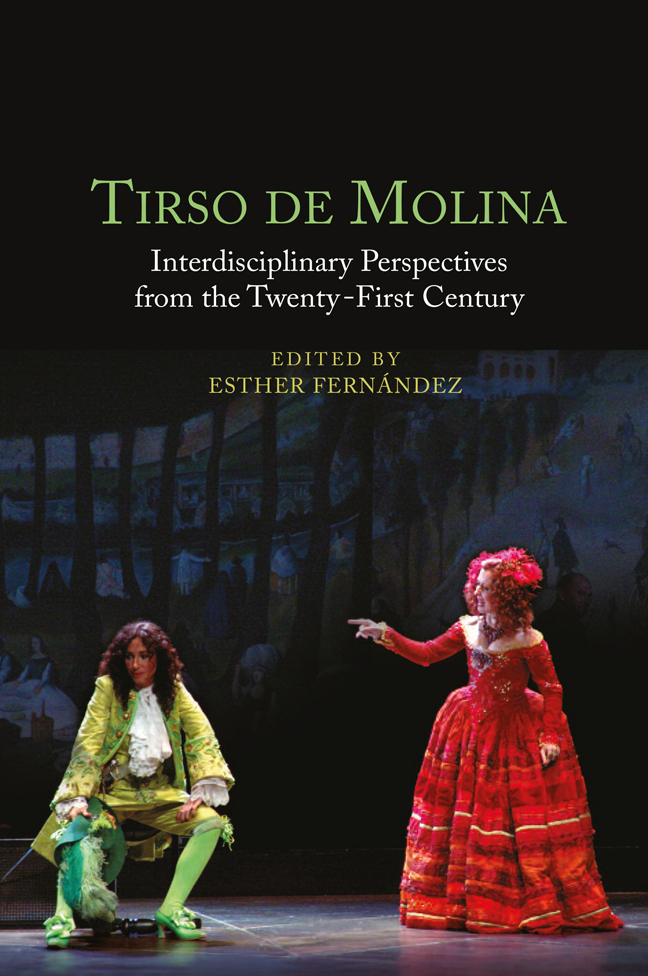1 - Aligning Contradictions: Tirso de Molina’s Life and Works
Published online by Cambridge University Press: 02 March 2024
Summary
“If, in the world of artistic creation, we were not frequently witnessing the multiform spectacle of Tirso de Molina’s many and various motivations, we would believe that his is a plausible case of split personality.”
—María del Pilar Palomo Vázquez, “La creación dramática de Tirso de Molina” (1997–1998)In her classic groundbreaking study, María del Pilar Palomo Vázquez holistically examines Tirso de Molina’s oeuvre to consider the confluence of the Mercedarian friar’s diametrical sides—the religious and the secular—which, scholars agree, are constitutive of both his life and his works; yet, according to Palomo Vázquez, these traits may operate as an almost schizophrenic interplay between seemingly irreconcilable self-contradictions. For Alonso Zamora Vicente, another eminent Hispanist, however, this paradox has a much more mundane explanation that could be elucidated simply by taking into account Tirso’s life circumstances. In Zamora Vicente’s words:
Let us say it promptly and quickly: we are dealing with a biography that lacks milestones of dazzling events or attractive activities .… Tirso’s life is nothing more than that of a shrewd friar conscious of his beliefs, who occupies important positions in an orderly fashion, and who also writes. And when circumstances oblige or mandate him, he stops writing.
(1990: 8)Although we have sparse bibliographic data and little personal information revealed by the playwright in his works (in contrast to Lope de Vega, for example), the double life that Tirso led left a very distinct imprint on his theater. His experience as a friar in the service of others may have equipped the playwright with the soft skills that set him apart from other contemporary authors. Tirso’s interest and open-minded attitude towards the faithful flock to whom he tended are reflected in most of his plays, which have deep psychological dimensions and ascribe an authenticity to the friar that make him seem much more genuine than most of the playwrights of his era.
Living Between Vocations
Gabriel Téllez was born in Madrid on 24 March 1579. Four days later he was baptized in the parish of San Sebastián, the same church where Lope de Vega was buried in 1635. Both of his parents, Andrés López and Juana Téllez, came from modest backgrounds and served Don Pedro Mejía Tovar, Count of Molina, which would partially explain Tirso’s pseudonym.
- Type
- Chapter
- Information
- Tirso de MolinaInterdisciplinary Perspectives from the Twenty-First Century, pp. 9 - 22Publisher: Boydell & BrewerPrint publication year: 2023

